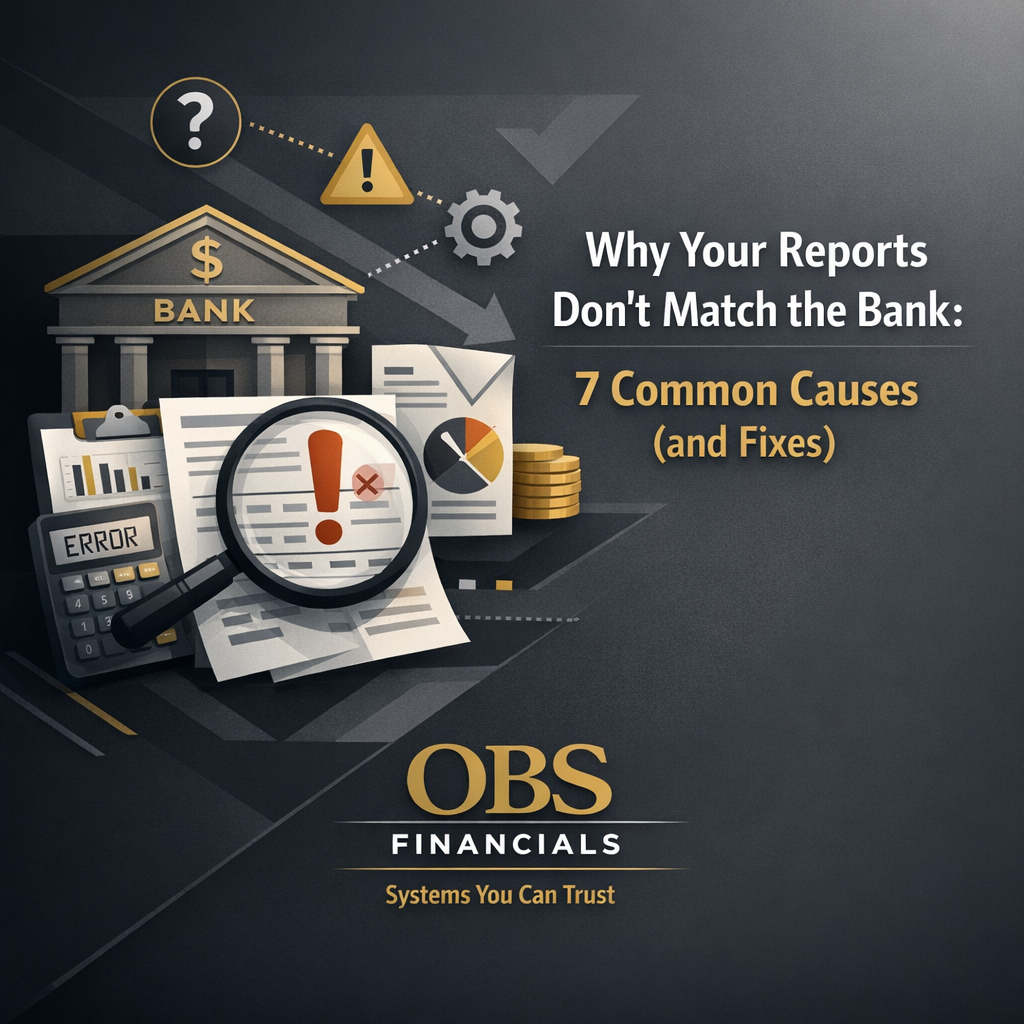If you’re aiming to grow your business, you might not realize just how much poor bookkeeping can stall your business growth. Without accurate, up-to-date financial records, your company can quickly lose control over cash flow, making it tough to invest in marketing, develop effective strategies, or even pay your team on time.
When your small business’s financial foundation is shaky, operational inefficiencies creep in, opportunities to increase your market share slip away, and your ability to serve your customers suffers. This is why many business owners find their growth stalls despite all their hard work — the missing link is often poor bookkeeping undermining your growth strategy and, ultimately, your revenue. By prioritizing reliable bookkeeping, you empower your business to make smart decisions, refine your business processes, and build the strong financial base needed to grow your company confidently and sustainably.
The Hidden Costs of Inaccurate Financial Records
Missed Opportunities for Financial Decision-Making
When your bookkeeping is inaccurate, you lose the clear financial insights needed for smart decision-making. This means missed chances to identify your most profitable products, spot seasonal trends, or adjust pricing to increase your revenue. Without knowing exactly where your money is going, it’s much harder to optimize your marketing efforts or invest strategically in your team and growth plans.
In fact, business owners often find themselves reacting to problems rather than proactively growing their company because their financial data is unreliable. Missing these financial signals stalls your growth strategy and leaves your company vulnerable to inefficiencies and lost market share.
Increased Expenses and Reduced Profitability
Errors in financial records often lead to unexpected expenses that eat away at your profits. Misclassified transactions can cause you to overpay taxes or miss critical deductions, effectively reducing the funds available to grow your business. Poor bookkeeping increases the risk of penalties and audits, which not only cost money but also drain valuable time and attention away from customers and operations.
Furthermore, without an accurate picture of cash flow, you might unintentionally waste resources through late payments, duplicate expenses, or unchecked fees, all of which harm your bottom line. These hidden costs compound and create significant obstacles in achieving your business growth goals.
Compliance and Legal Repercussions
Risks of Audits and Penalties
Poor bookkeeping dramatically increases the risk of audits and penalties that can derail your small business growth. When your financial records are incomplete or inaccurate, tax authorities and regulators often flag your company for a detailed audit. These audits are not only stressful and time-consuming but can also lead to costly fines if discrepancies are found in your filings.
Beyond monetary penalties, the lack of proper documentation complicates resolving audit issues and prolongs the process, diverting valuable time and effort from your core operations and your team’s focus on serving your customers. Ultimately, this reflects poorly on your business’s credibility and stunts business growth by draining resources that could otherwise be invested in your growth strategy.
Difficulty in Securing Funding
Inaccurate or disorganized bookkeeping makes it significantly harder to secure funding necessary to grow your business. Whether you are seeking loans, investor capital, or credit lines, lenders and investors require clear, reliable financial statements to assess the health and potential of your company. Without trustworthy financial data, your business appears riskier, and you may fail to meet their due diligence requirements.
This lack of financial management can cause missed opportunities to expand your market share or invest in new marketing approaches. For small business owners, the inability to demonstrate sound financial management can stall growth and limit your ability to act on your business goals and growth plans.
Operational Inefficiencies and Customer Impact
Impact on Cash Flow Management
Poor bookkeeping disrupts your ability to manage cash flow effectively, which is the lifeblood of any business. When you lack clear records on outstanding invoices, payment cycles, and expenses, your business can suffer from unpredictable cash shortages that disrupt daily operations. This means you might struggle to pay suppliers, your team, or invest in marketing and growth initiatives on time.
Inefficient cash flow management resulting from inaccurate financial tracking limits your company’s agility to seize opportunities or handle unexpected expenses, ultimately hindering your business growth and reducing overall operational efficiency.
Erosion of Customer Trust
Inaccurate bookkeeping doesn’t just hurt your finances—it can also harm your relationship with customers. Late or incorrect invoicing and payment mishaps due to poor financial records may frustrate your customers, damaging trust and your brand’s reputation. If your cash flow problems delay delivery or affect your ability to provide quality service, your customer base may shrink as clients seek more reliable competitors.
Maintaining meticulous bookkeeping is essential to ensure smooth transactions and foster strong, lasting trust with your customers—important elements for growing your market share and building a successful business.
Conclusion
Whether you’re launching your first venture or managing a fast-growing company, OBS Financials is here to bring clarity, confidence, and calm to your finances. With over a decade of certified expertise and a genuine passion for helping small business owners succeed, we offer more than just bookkeeping — we provide peace of mind.
From financial cleanup to payroll, monthly bookkeeping, and CFO-level insights, our flat-rate, insured services grow with your business. Book a free consultation today and discover how OBS Financials can help you reclaim your time, reduce stress, and make smarter financial decisions with a partner who treats your business like their own.
FAQ
What are the most common bookkeeping mistakes that can stall business growth?
The most common bookkeeping mistakes stalling business growth include mixing personal and business finances, misclassifying expenses, skipping bank reconciliations, neglecting regular record-keeping, poor cash flow management, disorganization, and falling behind on bookkeeping entries. These errors cause inaccurate financial reports, missed tax deductions, cash flow issues, and potential compliance problems.
How does failing to reconcile bank accounts regularly affect my business’s financial health?
Failing to reconcile bank accounts regularly risks undetected errors, fraud, and inaccurate financial records, leading to cash flow mismanagement and poor decision-making. It can cause bounced checks, failed payments, regulatory non-compliance, and weakened financial health, ultimately threatening business sustainability and growth.
Why is it important to separate personal and business finances in bookkeeping?
Separating personal and business finances is important because it simplifies bookkeeping, ensures accurate expense tracking, and clarifies financial management. It protects personal assets from business liabilities, facilitates tax compliance, enables better budgeting and decision-making, and enhances credibility with lenders and investors.
This separation helps avoid tax issues and legal complications.
How can poor expense categorization impact my business’s tax filings and budgeting?
Poor expense categorization can lead to inaccurate tax filings by misrepresenting deductible expenses, risking penalties and audits. It also distorts budgeting by providing misleading expense data, causing inefficient resource allocation and cash flow issues, ultimately affecting financial decisions and business performance. Accurate classification ensures compliance and better financial control .




